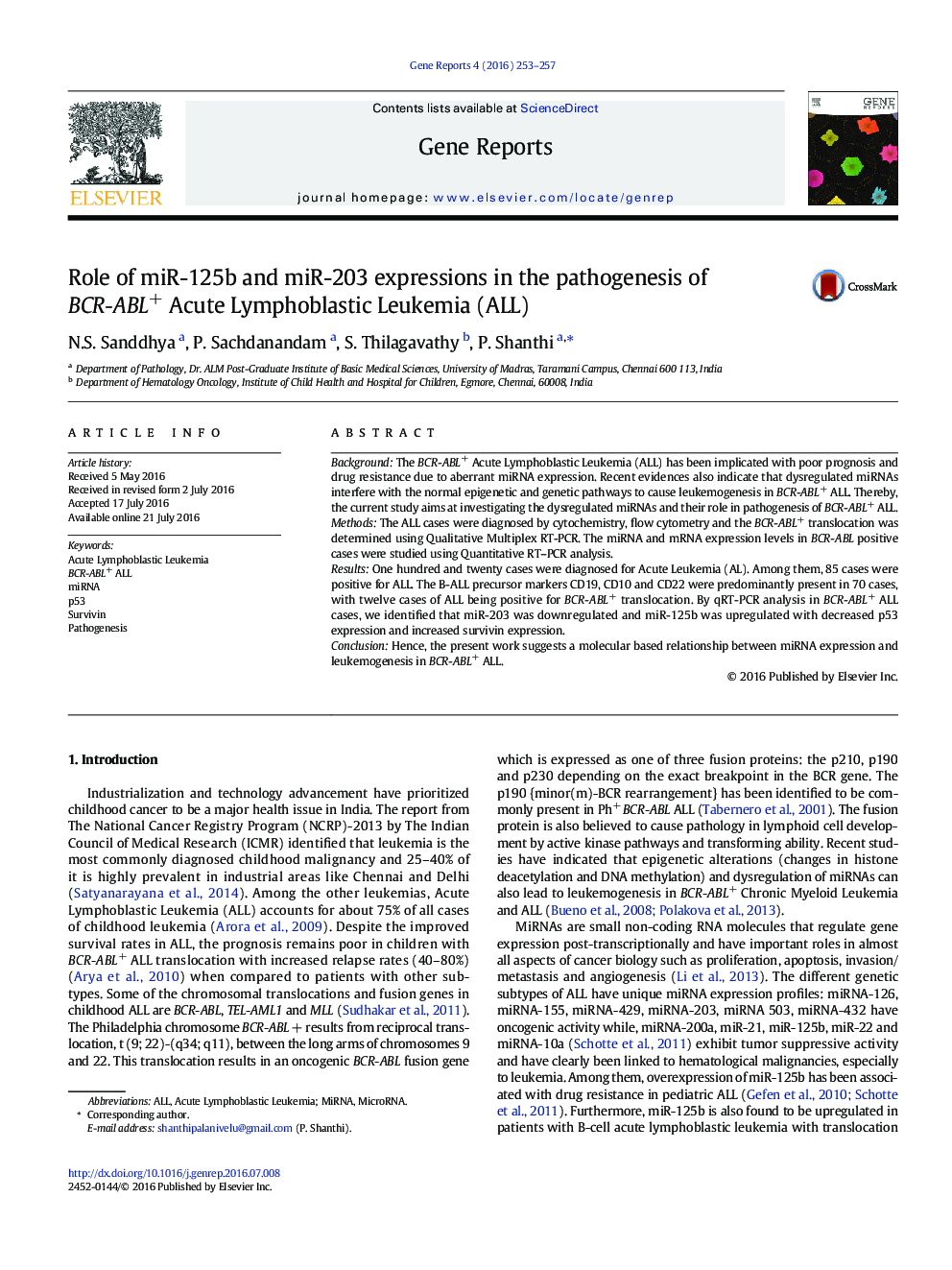| Article ID | Journal | Published Year | Pages | File Type |
|---|---|---|---|---|
| 2820510 | Gene Reports | 2016 | 5 Pages |
•This study will target application oriented research which could provide a crucial link between miRNA based interventions in designing of drugs for the treatment of cancer patients.•Studying the effects of epigenetic alterations rather than the kinase pathways alone may provide further insights into understanding the pathophysiology of BCR-ABL+ ALL.•The project will also evaluate the effect of PGG with HDACi as a therapeutic modality.•The studies performed on combination of synthetic and natural epigenetic drugs may provide a new avenue of cancer treatment.
BackgroundThe BCR-ABL+ Acute Lymphoblastic Leukemia (ALL) has been implicated with poor prognosis and drug resistance due to aberrant miRNA expression. Recent evidences also indicate that dysregulated miRNAs interfere with the normal epigenetic and genetic pathways to cause leukemogenesis in BCR-ABL+ ALL. Thereby, the current study aims at investigating the dysregulated miRNAs and their role in pathogenesis of BCR-ABL+ ALL.MethodsThe ALL cases were diagnosed by cytochemistry, flow cytometry and the BCR-ABL+ translocation was determined using Qualitative Multiplex RT-PCR. The miRNA and mRNA expression levels in BCR-ABL positive cases were studied using Quantitative RT–PCR analysis.ResultsOne hundred and twenty cases were diagnosed for Acute Leukemia (AL). Among them, 85 cases were positive for ALL. The B-ALL precursor markers CD19, CD10 and CD22 were predominantly present in 70 cases, with twelve cases of ALL being positive for BCR-ABL+ translocation. By qRT-PCR analysis in BCR-ABL+ ALL cases, we identified that miR-203 was downregulated and miR-125b was upregulated with decreased p53 expression and increased survivin expression.ConclusionHence, the present work suggests a molecular based relationship between miRNA expression and leukemogenesis in BCR-ABL+ ALL.
